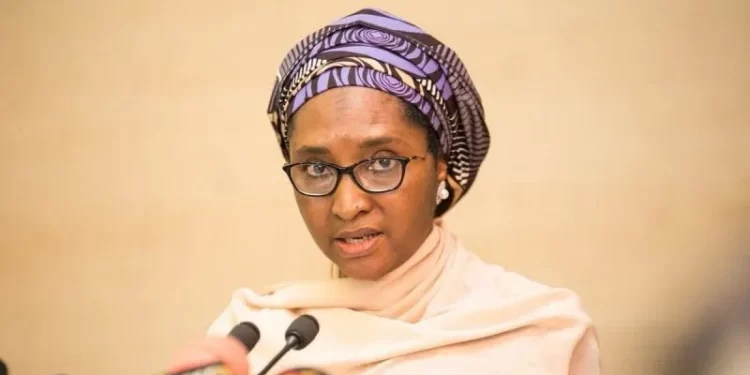The federal government of Nigeria’s fiscal position is getting direr as the government announced an over 10 percent rise in budget deficit year-on-year to about N11.3 trillion in 2023 from the N7.35 trillion expected at the end of the 2022 fiscal year.
Thus, the Minister of Finance, Budget, and National Planning Mrs. Zainab Ahmed said the only option available to the government is to borrow more, in spite of Nigeria’s choking debt burden.
Nigeria’s debt position is debt is N41 trillion as of March 2022 according to data from the Debt Management Office (DMO).
The Minister told the House of Representatives Committee on Finance during the presentation of the draft 2023-2025 Medium Term Expenditure Framework and Fiscal Strategy Paper (MTEF&FSP) on Monday that the FG may borrow about N11.3 trillion to fund expenditure in the 2023 budget as the deficit is projected to be at most, over 12.41 trillion next year or at least, N11.3trn. sadly, much of these borrowings will be to finance consumption as has been the tradition in recent years.
“This is significantly above the three percent threshold stipulated in the Fiscal Responsibility Act (FRA) 2007, and there will be no provision for treasury-funded MDAs capital projects in 2023. Scenario two, the federal government’s 2023 aggregate expenditure is estimated at N19.76trn (inclusive of GOEs). In this scenario, the budget deficit is projected to be N11.30trn in 2023 up from N7.35trn in 2022. This represents 5.01 percent of the estimated GDP, above the three percent threshold, stipulated in the Fiscal Responsibility Act (FRA), 2007” she explained.
“The 2023 federal government revenue is projected at N6.34trn, out of which only N373.17bn or 5.9 percent comes from oil-related sources. The balance of N5.97trn is to be earned from non-oil sources.
On oil revenues this year, she said despite higher oil prices, oil revenue has been underperforming due to significant oil production shortfall adding that crude oil production challenges and PMS subsidy deductions by NNPC constitute significant threats.
The vexed petroleum subsidy, she said the FG “may spend N3.36trn or N6.7trn in 2023. The first scenario, tagged “Business as Usual”, assumes that the subsidy on Premium Motor Spirit (PMS), estimated at N6.72trn for the full year 2023 will remain and be fully provided for.”
However, she said the second scenario, tagged “The Reform Scenario”, assumed that the petrol subsidy would remain up to mid-2023 based on the 18 months extension announced in early 2021.
She explained that “In which case, only N3.36trn will be provided for. Additionally, there will be tighter enforcement of the performance management framework for Government Owned Enterprises (GOEs) that will significantly increase operating surplus/dividend remittances in 2023. Both scenarios have implications for net accretion to the Federation Account and projected deficit levels.
Zainab also said despite pegging N3.2 billion for pipeline security, Nigeria is not getting enough value on it to address energy theft.
She said: “From what has happened in 2022, clearly what we are spending is not giving us much value because production continues to decline and what this means is whatever we are doing is not working and therefore we have to do something totally different. Oil production in April was 1.3 million barrels per day and by July it was 1.4 million. We do hope that the increase will be very significant because it’s costing us not just N3.2 billion in terms of security cost, but the revenue we have earned.”













